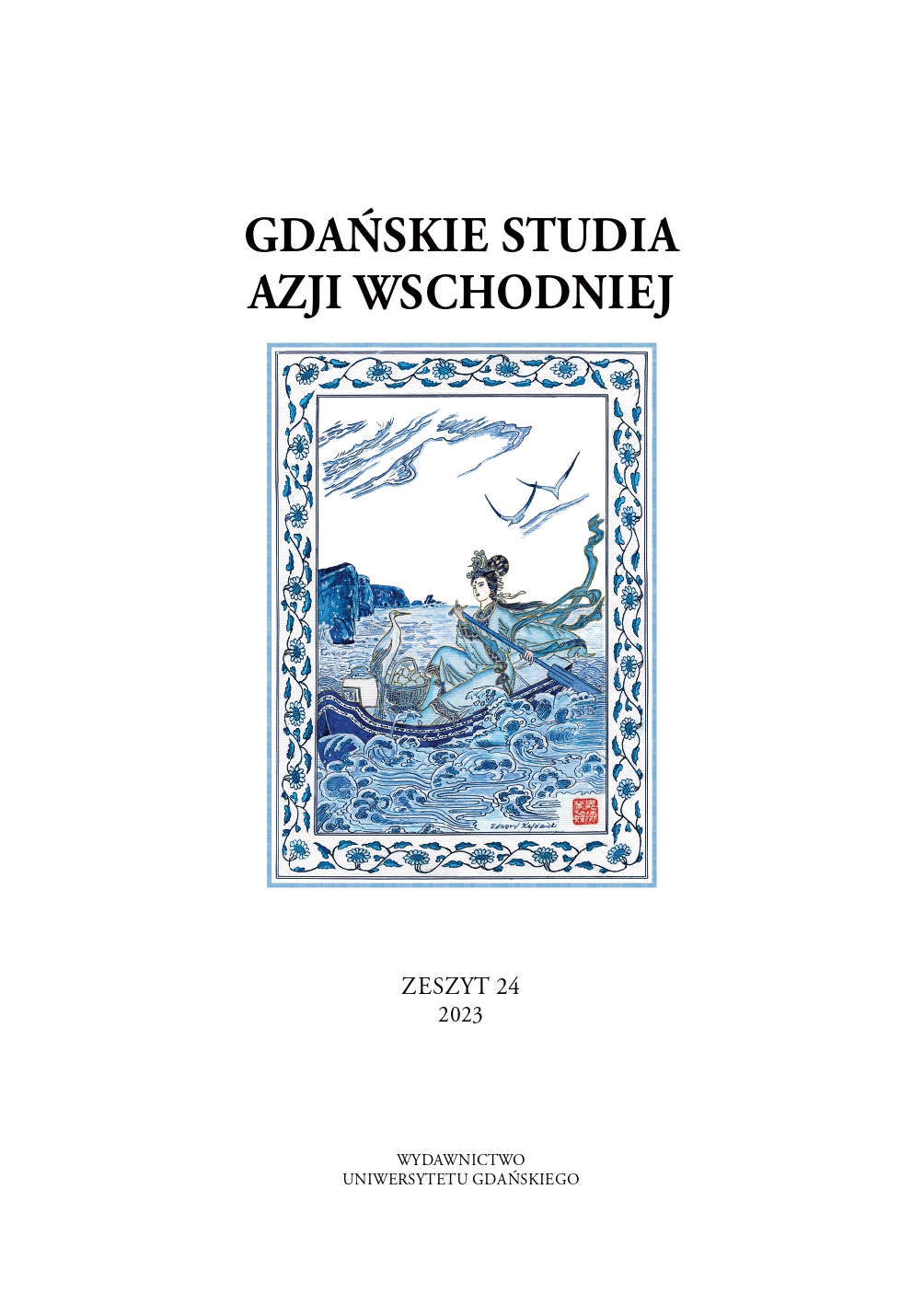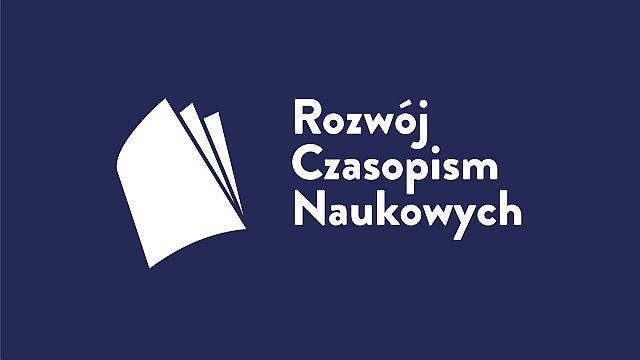Królestwo Goryeo wobec najazdu mongolskiego w XIII wieku
Abstrakt
In the thirteenth century, vast areas of Eurasia witnessed the Mongols’ destructive expansion initiated by Chinggis Khan and continued by his successors. It also extended to the Kingdom of Goryeo, which was founded in 918 by Wang Geon. For almost three centuries, the country in question conducted a skilful foreign policy towards its more powerful neighbours, but from 1170 it was in an incessant internal crisis caused by a military revolt. Subsequently, in 1196, General Choe Chungheon took over the reins of government, marginalising the king. From 1231, Goryeo became the target of a Mongol invasion, which lasted intermittently until 1259. As the court fled to Ganghwa Island, the main burden of fighting rested on the shoulders of the province’s inhabitants, who used guerrilla methods to combat the invaders. The situation was only normalised by the removal of the Choe family from power and the agreement between King Wonjong and Kublai Khan, who afterwards also became the Chinese Emperor. Thus, China exerted a significant influence on the events taking place on the Korean Peninsula till the end of the fourteenth century.
Downloads
Bibliografia
Atwood C.P., The Date of the „Secret History of the Mongols” Reconsidered, „Journal of Song-Yuan Studies” 2007, no. 37.
Baabar, Dzieje Mongolii, tłum. S. Godziński, Wydawnictwo Akademickie „Dialog”, Warszawa 2005.
Bazylow L., Historia Mongolii, Zakład Narodowy im. Ossolińskich, Wrocław 1981.
Bojko K., Polska a imperium mongolskie oraz Złota Orda w latach 1241–1502, „Perspektywy Kultury” 2020, t. 31, nr 4.
Breuker R.E., And now, Your Highness, we’ll discuss the location of your hidden rebel base. Guerrillas, Rebels and Mongols in Medieval Korea, „Journal of Asian History” 2012, vol. 46, no. 1.
Grayson J.H., Korea. A Religious History, Routledge, New York 2002.
Henthorn W.E., Korea. The Mongol Invasions, Brill, Leiden 1963.
Kałużyński S., Dawni Mongołowie, Państwowy Instytut Wydawniczy, Warszawa 1983.
Kim J., Lee J., Lee J., „Goryeoyang” and „Mongolpung” in the 13th–14th Centuries, „Acta Orientalia Academiae Scientiarum Hungaricae” 2015, vol. 68, no. 3.
Kowalski S., W obronie chrześcijańskiej Europy. Bitwa pod Legnicą. 9 kwietnia 1241, „Resovia Sacra” 2019, t. 26.
Labuda G., Wojna z Tatarami w roku 1241, „Przegląd Historyczny” 1959, t. 50, nr 2.
Ledyard G., The Mongol Campaigns in Korea and the Dating of „The Secret History of the Mongols”, „Central Asiatic Journal” 1964, vol. 9, no. 1.
Lee H.W., Political Power Groups of Koryŏ Dynasty after the Period of Yüan China’s Intervention, „International Journal of Korean History” 2002, vol. 3, no. 1.
Lee I.J., Trends and Prospects. Historical Studies on Koryŏ-Mongol Relationship in the 13–14th centuries, „The Review of Korean Studies” 2016, vol. 19, no. 2.
Lee K.B., A New History of Korea, trans. E.J. Shultz, E.W. Wagner, Ilchokak, Seoul 1984.
Lee M., Changes in the Logic and System behind the Succession of the Koryŏ Throne under Mongol Subjugation, „The Review of Korean Studies” 2016, vol. 19, no. 2.
Li C., Transition under Ambiguity. Koryǒ-Mongol Relations around 1260, „International Journal of Korean History” 2020, vol. 25, no. 1.
Mencel M.T., Ekspansja mongolska w Azji Wschodniej po śmierci Czyngis-chana. Uwarunkowania i konsekwencje, „Studia Gdańskie. Wizje i Rzeczywistość” 2016, t. 13.
Min H.K., Koryǒ Politics under the Mongol Control. Dynastic Continuity during the Period of Royal Absense, „International Journal of Korean History” 2000, vol. 1, no. 1.
Mun C.Y., Yi Gyubo pyeongjeon. Gyeonggido yeoksamunhwainmul jaebalgyeon, Hangungmunhwawonyeonhapoe Gyeonggidojihoe, Suwon 2011.
Nguyen T.M.H., Tributary Activities of Vietnam and Korea with China. Similarities and Differences, „International Journal of Korean History” 2021, vol. 26, no. 1.
Park E.Y., Korea. A History, Stanford University Press, Stanford 2022.
Pietrewicz O., Krewetka między wielorybami. Półwysep Koreański w polityce mocarstw, Asian Century, Warszawa 2020.
Pirozhenko O., Political Trends of Hong Bog Won Clan in the Period of Mongol Domination, „International Journal of Korean History” 2005, vol. 9, no. 1.
Robinson D.M., Korea and the Fall of the Mongol Empire, Cambridge University Press, Cambridge 2022.
Robinson D.M., Rethinking the Late Koryŏ in an International Context, „Korean Studies” 2017, vol. 41.
Rodziński W., Historia Chin, Zakład Narodowy im. Ossolińskich, Wrocław 1992.
Rurarz J.P., Historia Korei, Wydawnictwo Akademickie „Dialog”, Warszawa 2009.
Seth M.J., A History of Korea. From Antiquity to the Present, Rowman & Littlefield, Lanham 2010.
Tajna historia Mongołów. Anonimowa kronika mongolska z XIII w., tłum. S. Kałużyński, Państwowy Instytut Wydawniczy, Warszawa 1989.
Wang S., What Tang Taizong Could Not Do. The Korean Surrender of 1259 and the Imperial Tradition, „T’oung Pao” 2018, vol. 104, no. 3–4.
Wong K.K., All Are the Ruler’s Domain, but All Are Different. Mongol-Yuan Rule and Koryŏ Sovereignty in the Thirteenth and Fourteenth Centuries, „Seoul Journal of Korean Studies” 2021, vol. 34, no. 1.
Yoon Y.H., The Focal Issues in the Historical Study of the Koryŏ’s Resistance against Mongol, „International Journal of Korean History” 2006, vol. 10, no. 1.
Yun P., Mongols and Western Asian in the Late Koryŏ Ruling Stratum, „International Journal of Korean History” 2002, vol. 3, no. 1.
Yun P., Popularization of Mongol Language and Culture in the Late Koryŏ Period, „International Journal of Korean History” 2006, vol. 10, no. 1.

 Uniwersyteckie Czasopisma Naukowe
Uniwersyteckie Czasopisma Naukowe





